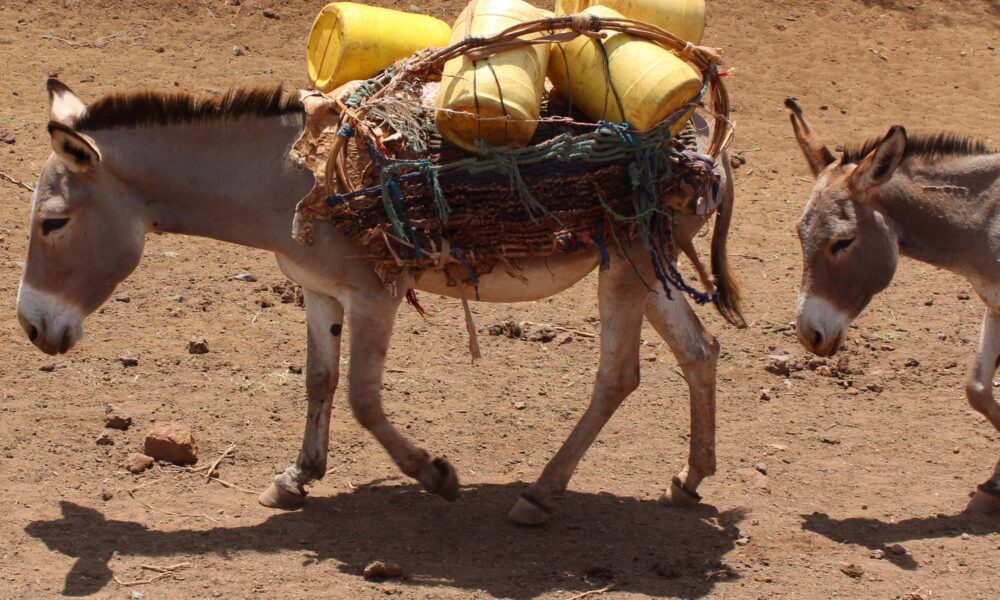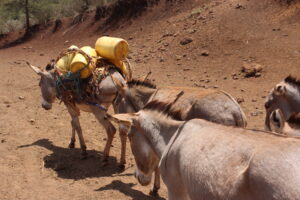DORIA YAIMARISHWA KATIKA MGODI WA DABEL HUKU BUNDUKI MOJA YA POLISI ILIYOIBIWA IKIPATIKANA.
July 25, 2024

By Winnie Adelaide
Hey, do you keep donkeys? Do you have one or several of them? Did you know that there is a booming market for the same? Well theft is thriving and you need to be extra vigilant to protect your donkeys.
Kenya is the hub for the export of donkey skin to China costing farmers’ invaluable livestock. The Chinese use the donkey skin to make an expensive luxury product called ‘EJIAO’ that is believed to have medicinal and cosmetic benefits and also used as an aphrodisiac.
China doesn’t have enough donkeys to meet demand, and breeding large numbers is difficult.
When Kenya’s donkey abattoirs were active, they would slaughter an estimate of 1,260 donkeys per day. Sadly, theft of the donkeys has been on the rise due to the high demand of the skin. This increase in donkey slaughter is gradually having consequences on the communities who traditionally rely on donkeys as a source of livelihood.
According to the Kenya population and housing census 2009, it’s reported that the population of donkeys was at 1,832,515 (KNBS, 2010) while in 2019 it went down to 1,176,373 (KNBS 2020).
The donkey population in Marsabit County is estimated to be 100,000.

Ethiopia has the highest number of donkeys with an estimate of 8.5 million.
There has been cross-border donkey movement, and smuggling of donkeys with the attendant risk of trans boundary diseases at the Tanzania and Ethiopia borders.
The media has been urged to spread awareness on the donkey trade by engaging as many stakeholders as possible who can lobby for animal welfare and by informing the public more about the trade so as to safeguard the donkeys.
The Africa Network for Animal Welfare (ANAW) in conjunction with Welttierschutzgesellschaft e.V., (WTG) is promoting animal welfare and sensitization of donkey skin trade so as to create awareness amongst the public. ANAW and WTG are urging the government and other stakeholders to enforce laws that favor animals(donkeys).
“ANAW is working towards policy development so that we recommend the government that there is need to develop strong legislations and enforcement procedures and measures that will be used to bring a complete halt to the trade of donkeys,” Josiah Ojwang ANAW.
In East Africa, most farmers that cannot afford mechanized equipment heavily rely on the use of donkeys for heavy lifting to cultivate land, transport and haul water and firewood. The donkeys are mainly used to support their livelihoods.
The people have also been urged to take care of the donkeys because it is believed that the donkey might go extinct in 2023 because of the trade. It is believed that donkeys can live up to 50 years if well taken care of. 25 of their first years they tend to remember their lives and the past life. They should also treat donkeys with the uttermost care and respect in order for the animals to live for longer
” Donkeys are the most misunderstood and abused animals around the world” Bonnie Jo. Campbell.